Managing projects efficiently can be a challenge, especially when you’re juggling multiple tasks, teams, and deadlines.
That’s why tools like Jira have long been popular for project management and issue tracking, offering a robust set of features to streamline workflows.
However, as your team grows or your project needs evolve, you may find that Jira isn’t the perfect fit for every situation.
If that’s the case, this post is for you. We’ll explore several Jira alternatives, each offering distinct features and benefits to help you find the best tool for your team’s success.
Disclaimer: If you buy any products through links on this site, I may earn a commission. But it doesn't make any difference to your cost, and it helps me keep this blog running. So you could always read my articles for free.
Why consider Jira alternatives?
Jira has earned its reputation as a powerful project management and issue-tracking platform, especially in software development. However, it may not always meet your specific needs, prompting you to consider tools similar to Jira.
One common reason teams explore other options is Jira’s complexity. While its extensive features are advantageous for some, others find the interface overwhelming, especially for non-technical users.
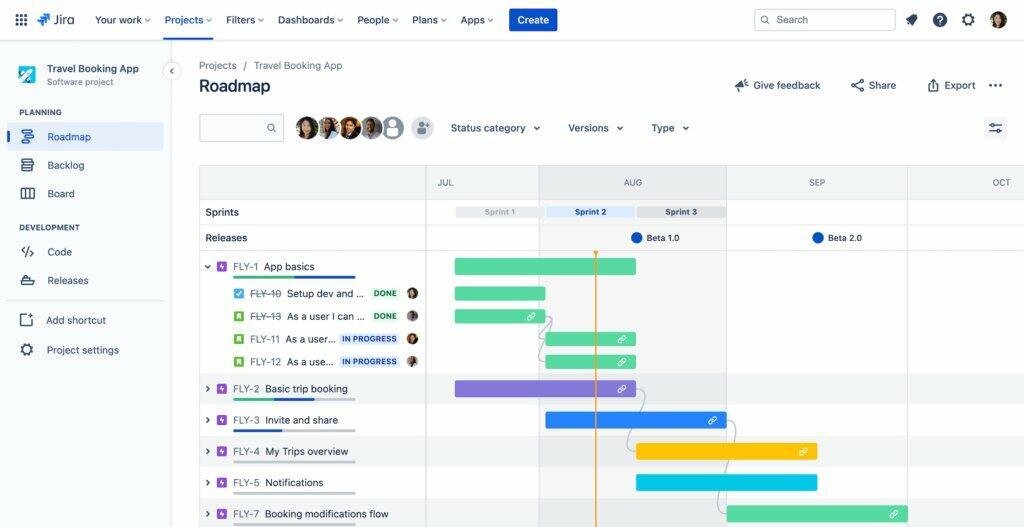
For example, if you feel like you’re spending more time learning the system than managing your campaigns, you may want to switch to something like Trello, which offers a more user-friendly, visually focused interface for managing workflows.
Affordability can also be a deciding factor. Jira’s pricing model may not fit smaller teams or startups. In contrast, Jira competitors like ClickUp or Monday.com often offer flexible plans, making them more accessible for teams with limited budgets.
Additionally, the rigidity of some Jira workflows can pose challenges. If your projects demand highly customizable workflows or seamless integration with niche tools, platforms like Asana or Airtable might better suit your needs.
Evaluating Jira alternatives isn’t about finding flaws in the tool—it’s about identifying what works best for your team.
Retated: Jira Review
What are the top alternatives to Jira?
By exploring other platforms, you might discover features, interfaces, or pricing models that align better with your unique requirements, ultimately improving efficiency and collaboration. So, let’s begin.
Monday Dev
Managing software development projects requires a tool that balances robust functionality with ease of use.
Monday Dev, a specialized version of Monday.com, positions itself as an alternative to Jira, offering a customizable and intuitive interface tailored for development teams.
Monday Dev stands out for its flexibility. You can tailor workflows, dashboards, and automation to fit your team’s needs, making it suitable for diverse projects.
Its visual interface, similar to a Kanban board, is particularly user-friendly, helping both technical and non-technical stakeholders stay aligned.
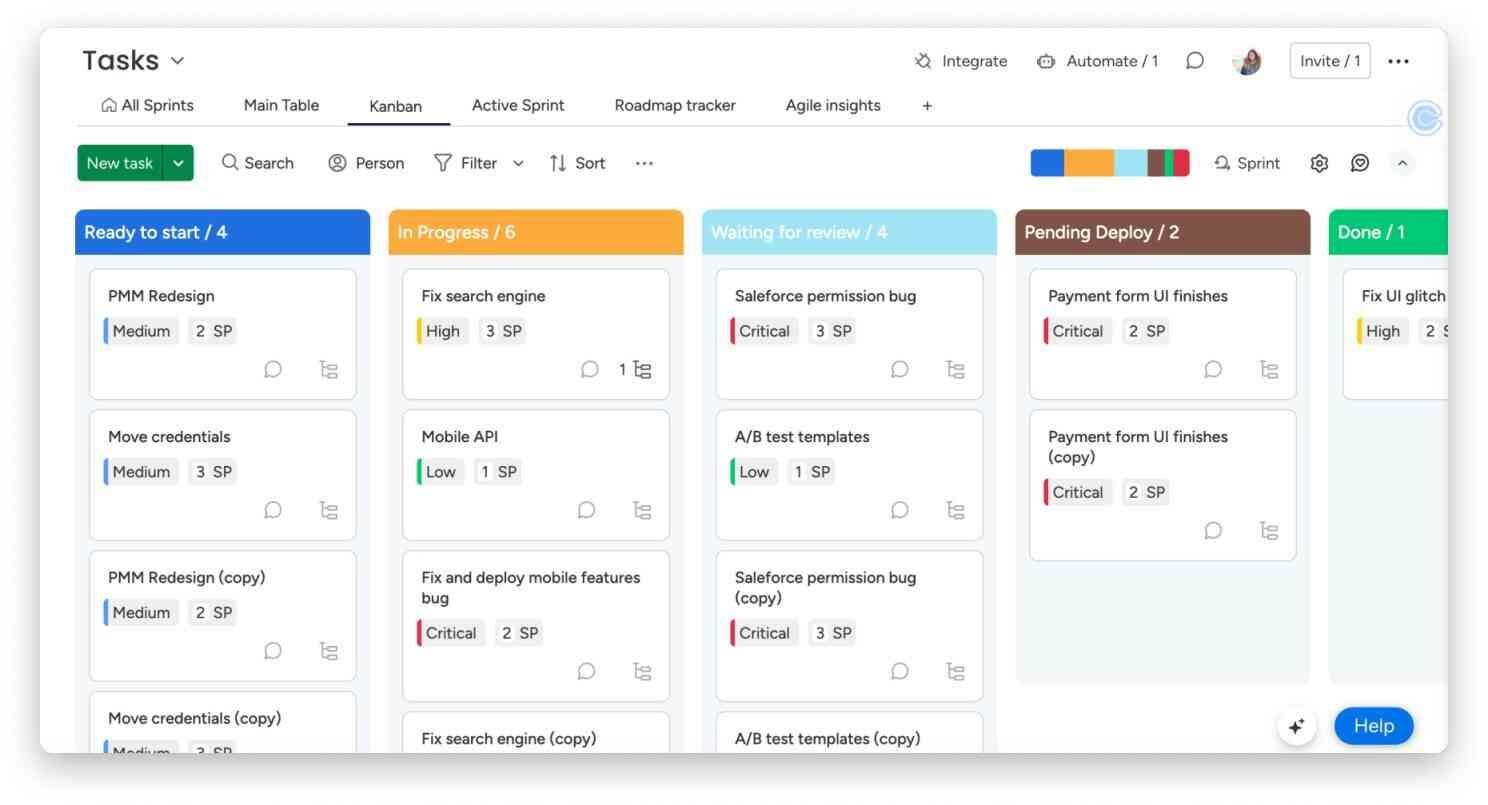
However, Monday Dev might not be ideal for every team. It lacks some advanced issue-tracking features that Jira excels at, such as robust backlog management.
Teams managing highly complex projects may find these limitations restrictive. But if you find Jira’s complexity or rigid workflows challenging, Monday Dev might address these concerns.
Zoho Projects
Zoho Projects is a project management system that offers a simpler, cost-effective substitute to Jira, especially for teams outside software development.
If you find Jira’s learning curve steep or its pricing restrictive, Zoho Projects might be one of the Jira alternatives worth exploring.
Zoho Projects excels in ease of use and affordability. Its interface is straightforward, making it accessible for teams with limited technical expertise.
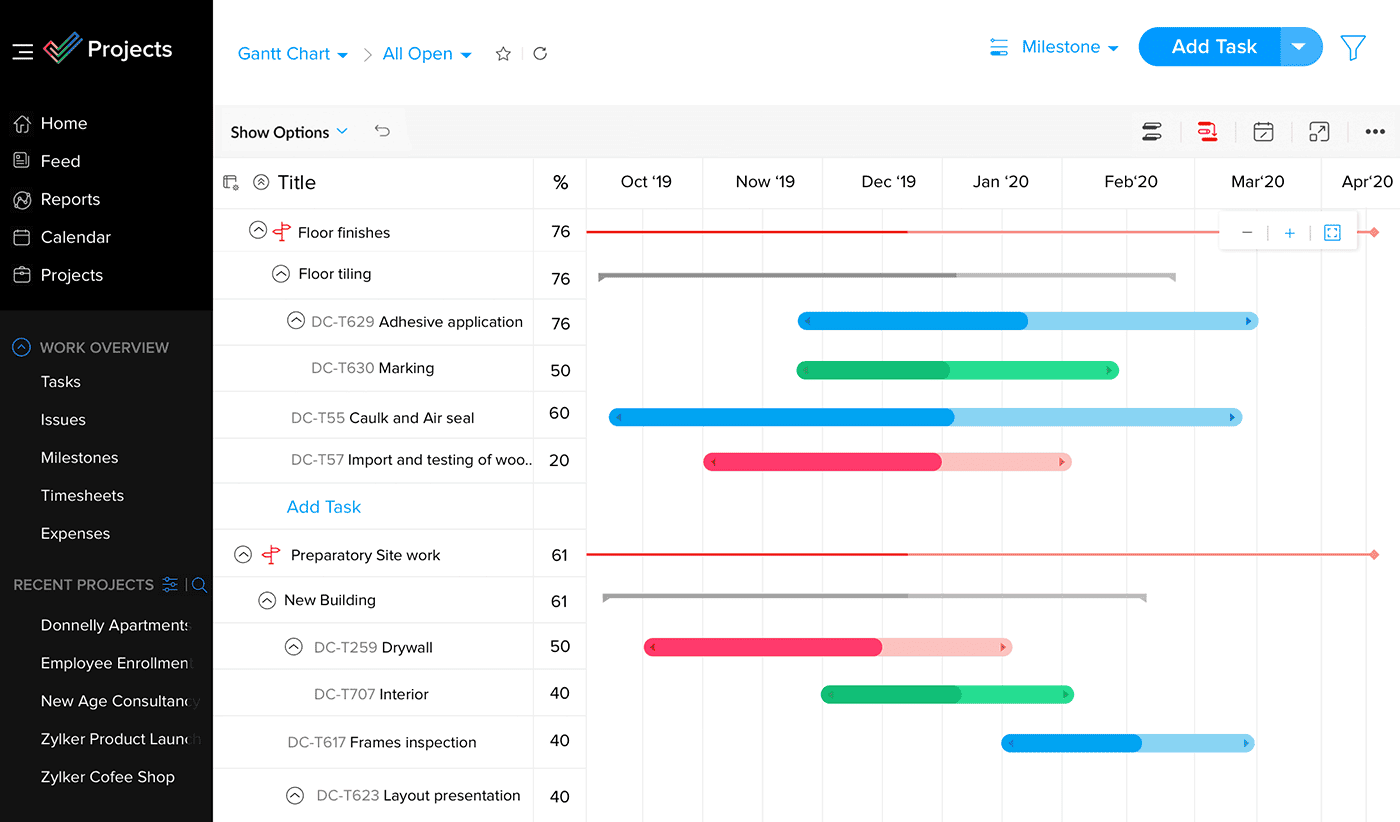
It also integrates seamlessly with other Zoho apps, which is advantageous if you already use Zoho’s ecosystem.
However, Zoho Projects lacks some advanced features Jira users may rely on, such as sophisticated issue-tracking and agile-focused tools.
Teams handling large-scale software development projects may find it less comprehensive in comparison to other tools similar to Jira.
Zoho Projects is a practical choice for small to medium-sized teams needing a straightforward tool, but it may not suit highly technical workflows.
Notion
Notion, known for its flexibility and collaborative features, serves as a versatile alternative to Jira.
If you prioritize simplicity and customization over rigid structures, Notion can adapt to your team’s project management needs.
Notion’s strength lies in its flexibility. You can design workflows, databases, and Kanban boards to match your team’s unique processes.
Its collaborative features make it easy to centralize documentation, tasks, and discussions in one place.
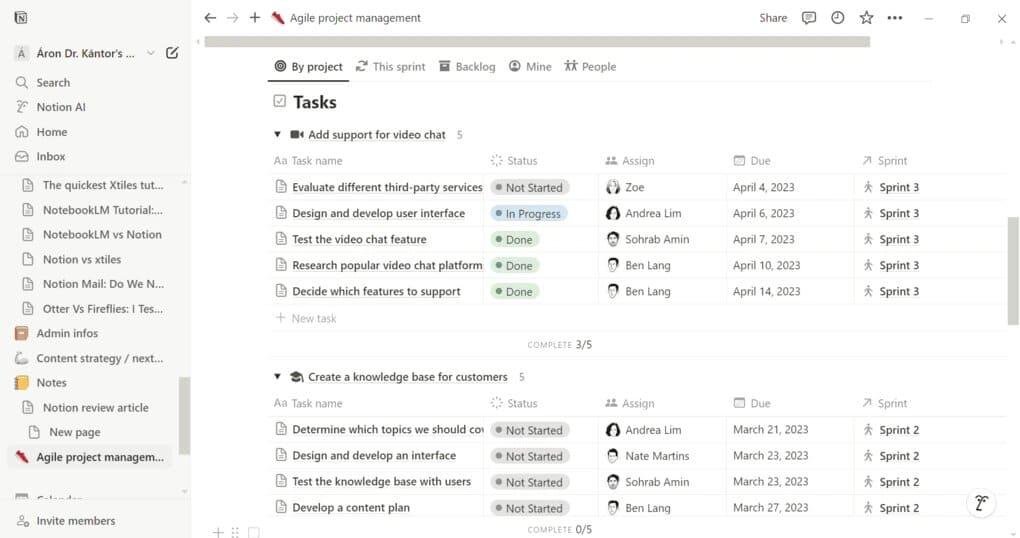
However, Notion lacks specialized tools for software development, such as advanced issue-tracking or sprint planning features that Jira offers.
Large-scale development teams may find these limitations a barrier. Additionally, its customization potential can lead to inconsistency if not managed carefully.
Notion works best for teams seeking an adaptable, all-in-one workspace. However, development-focused teams may need a tool with more technical capabilities. So, if you work on building software, you might need to look for other Jira competitors.
Teamwork.com
Managing projects can get complicated, and tools like Jira, while powerful, can sometimes feel overwhelming. Teamwork.com offers a Jira alternative that’s simpler and more geared toward teams working with clients or juggling multiple projects.
Teamwork.com focuses on client-related features like time tracking, billing, and resource management. It’s user-friendly, so your team can hit the ground running without much training.
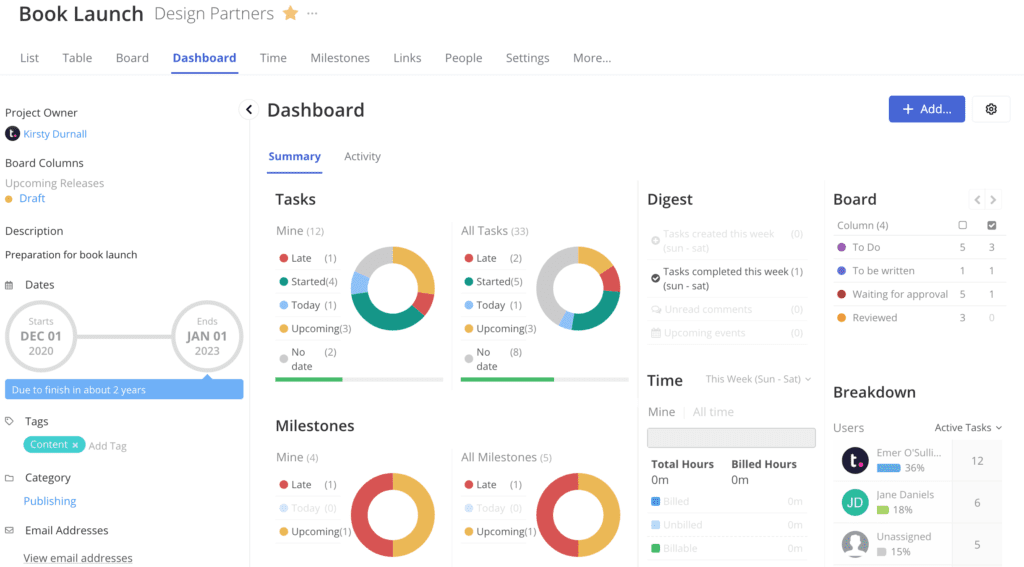
That said, Teamwork lacks Jira’s depth for software development, such as detailed issue tracking or advanced workflow automations. If your team works heavily in development, it might not meet all your needs.
Teamwork.com is a solid option for client-focused projects but may not be the best fit for highly technical workflows.
Confluence
When it comes to managing projects and documentation, you might already know Jira’s strengths. But if you’re looking for a tool that emphasizes collaboration and knowledge sharing, Confluence is one of the top alternatives to Jira that’s worth considering.
While both tools come from Atlassian, Confluence takes a different approach, focusing on team spaces and centralized content.
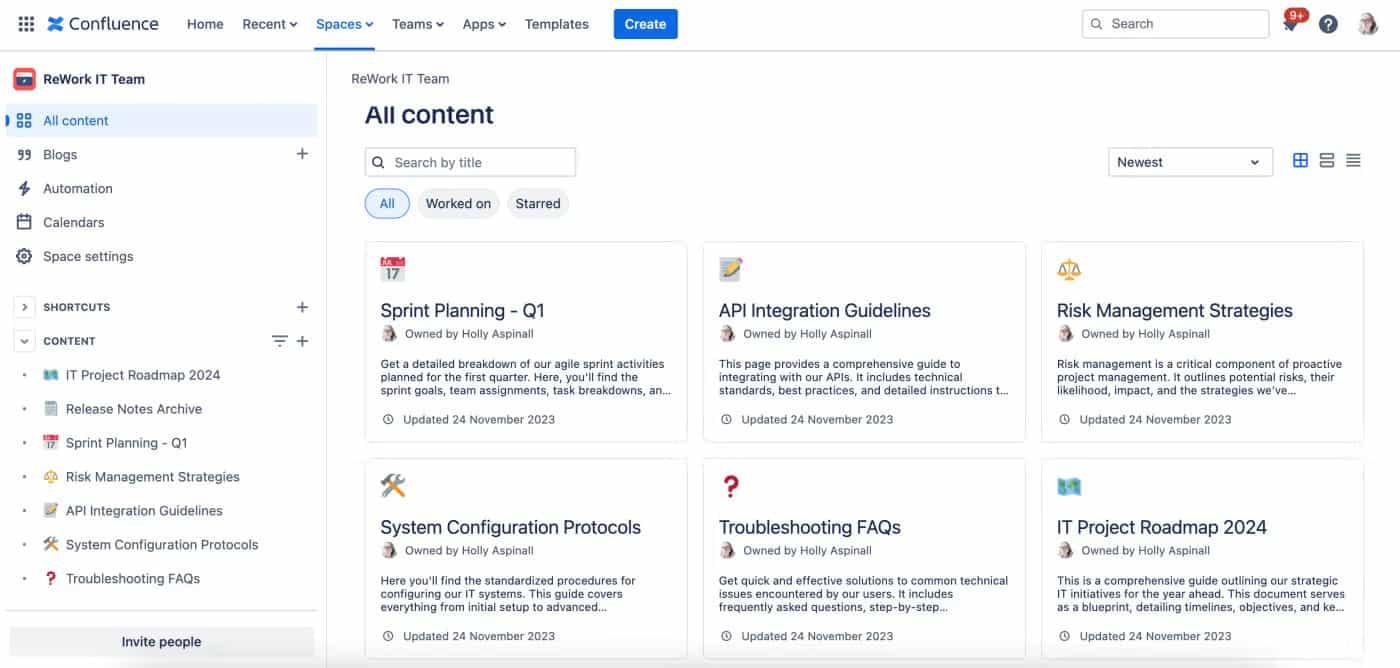
Confluence is fantastic for creating and organizing documentation. It’s especially useful if your team thrives on shared knowledge and brainstorming.
You can rely on it for keeping meeting notes, project updates, and team guidelines in one easily accessible place. The integration with other tools, including Jira, can also streamline your workflows.
However, Confluence doesn’t replace Jira for issue tracking or development workflows. Teams looking for detailed task management or agile tools may find it limited on its own. Unlike most tools similar to Jira, Confluence works best as a complement, not a standalone project management tool.
Confluence is great for fostering collaboration and managing documentation. Pair it with other tools if you need advanced task management or development-focused features.
Wrike
If you’re looking for something that blends project management with collaboration, Wrike might catch your attention. It is one of the top alternatives to Jira, designed to handle complex workflows without overwhelming your team.
Wrike stands out for its flexibility. You can customize dashboards, set dependencies, and use features like time tracking and built-in approvals.
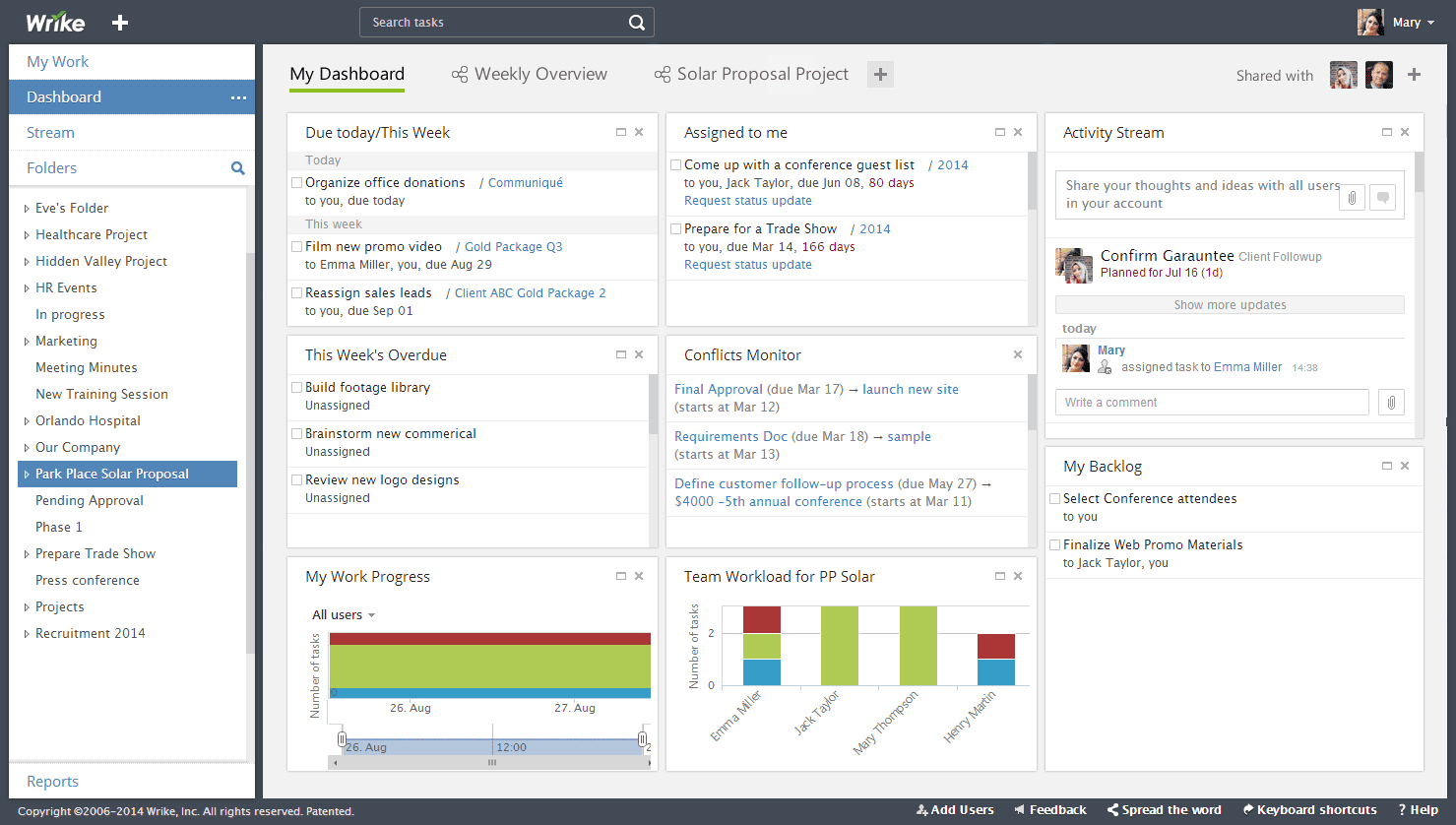
You’ll also appreciate Wrike for its real-time updates and dynamic request forms, which streamline communication. Like many Jira competitors, Wrike gives you integration options with tools like Slack and Google Workspace.
That said, Wrike’s interface can feel cluttered at first, especially for new users. Teams looking for deep development features, like advanced issue tracking or backlog management, may find Jira more suitable.
Wrike is a solid choice for teams that need versatile project management and strong collaboration features. For heavy development projects, you might need something more specialized.
Airtable
If you’re looking for a tool like Jira that’s both flexible and user-friendly, Airtable might be worth considering.
Unlike Jira, which is heavily geared toward software development, Airtable offers a more visual, spreadsheet-like interface that’s great for organizing data and tracking progress in a way that suits various teams.
The biggest strength of this Jira alternative is its flexibility. You can build custom workflows, use templates, and switch between grid, calendar, or Kanban views easily. Its integrations with other tools, including Slack and Google Drive, are also a bonus.
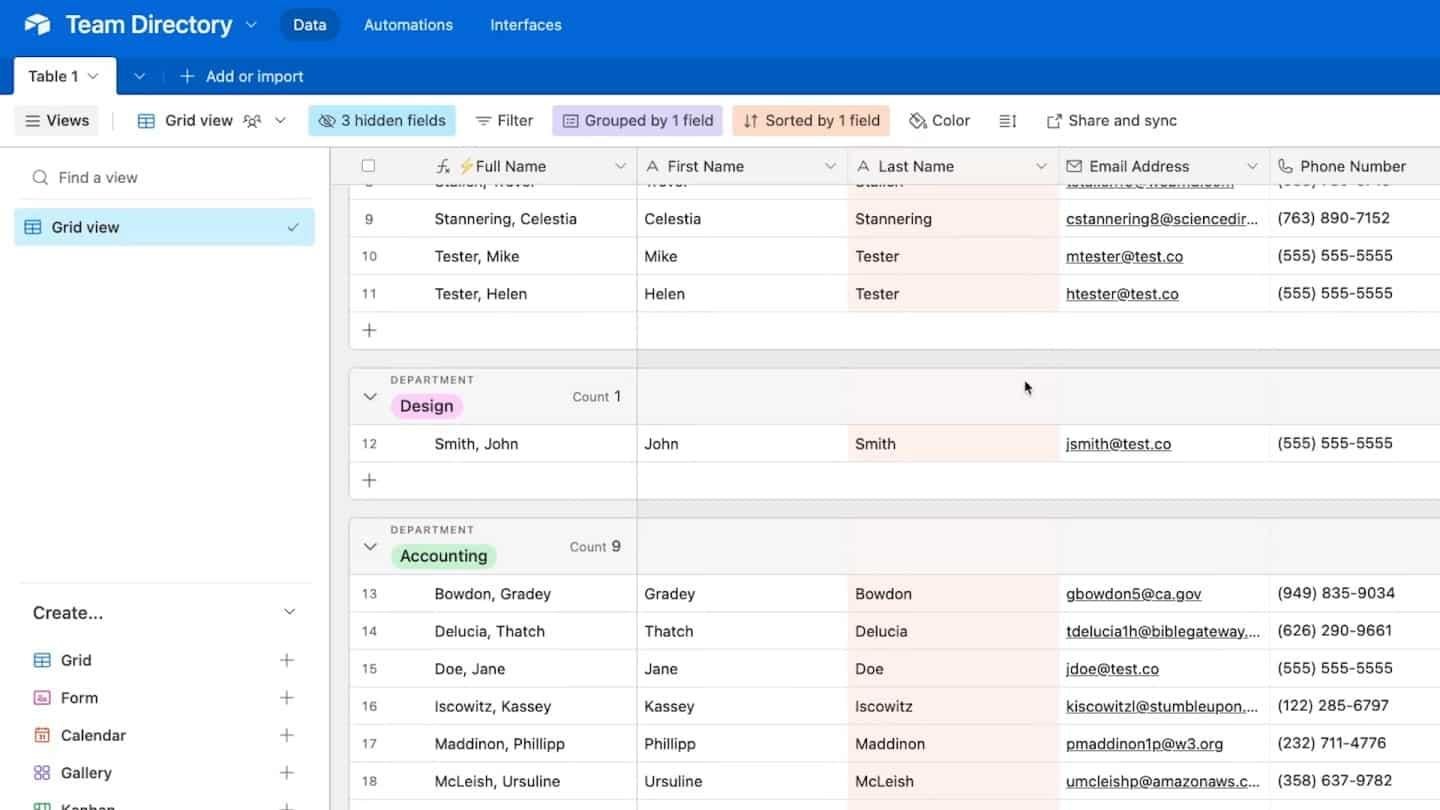
However, Airtable might lack the advanced project management features that Jira offers, especially for development-focused teams. It’s not designed for complex issue tracking or sprint planning.
Airtable is ideal for teams seeking a more flexible, visual tool for tracking tasks. If you need advanced features for software development, Jira is still the go-to option.
Related: Airtable Review
Smartsheet
If you’re looking for a project management tool that’s more than just a task tracker, Smartsheet could be one of the Jira alternatives worth exploring.
It’s a spreadsheet-based tool, but with the added power of project management features like Gantt charts and automated workflows.
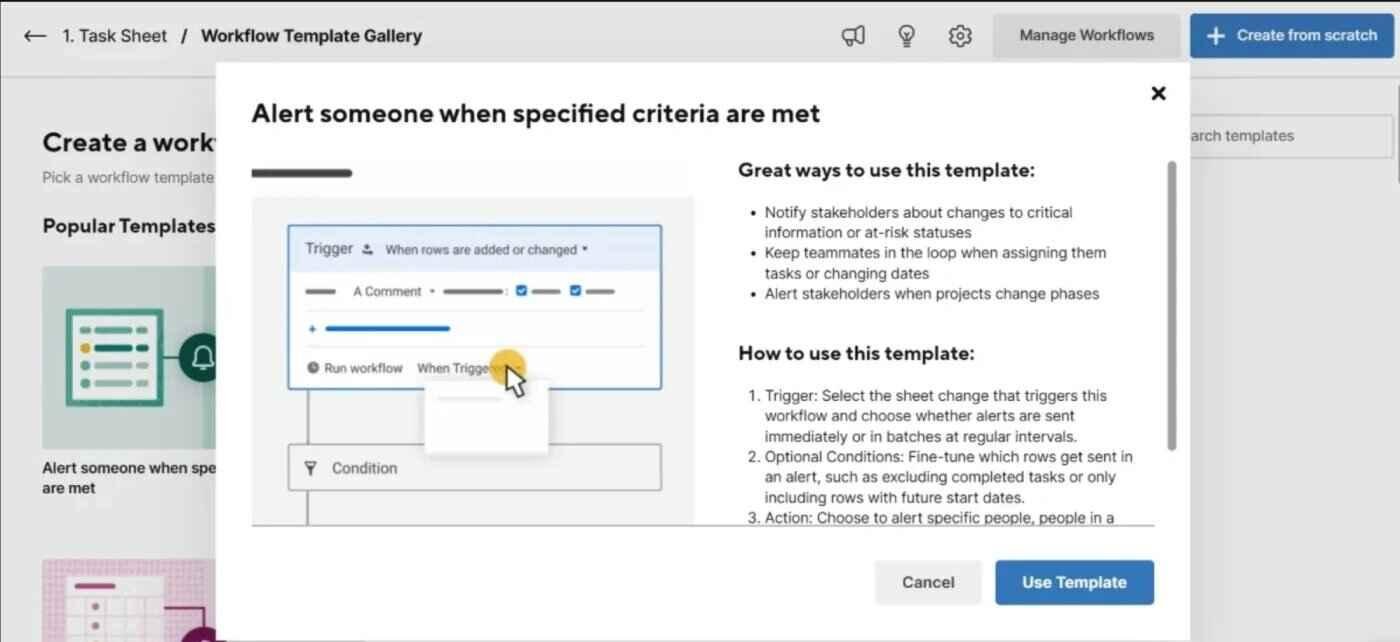
Smartsheet is easy to use, especially if you’re familiar with spreadsheets. It offers customization, reporting tools, and real-time collaboration features.
You will find it helpful for coordinating large cross-functional teams, thanks to its ability to track tasks and deadlines in one place. The automation features are also handy for reducing manual work.
However, Smartsheet may not be as intuitive for teams needing more advanced project management features like issue tracking or detailed agile workflows.
If you’re running development sprints or managing a backlog, it might not be a perfect fit compared to other platforms similar to Jira.
Smartsheet is a great option for teams looking for a flexible, spreadsheet-like tool for project management. But if you’re focused on development work, Jira may still be the better choice.
Asana
If you’re looking for a tool that’s a bit more straightforward than Asana could be one of the best alternatives to Jira.
It’s known for its simplicity and user-friendly interface, making it a good option for teams that want to keep things organized without getting bogged down by complexity.
Similar to other Jira competitors, Asana offers a range of views, like list, board, and calendar, to help manage tasks in ways that suit your workflow.
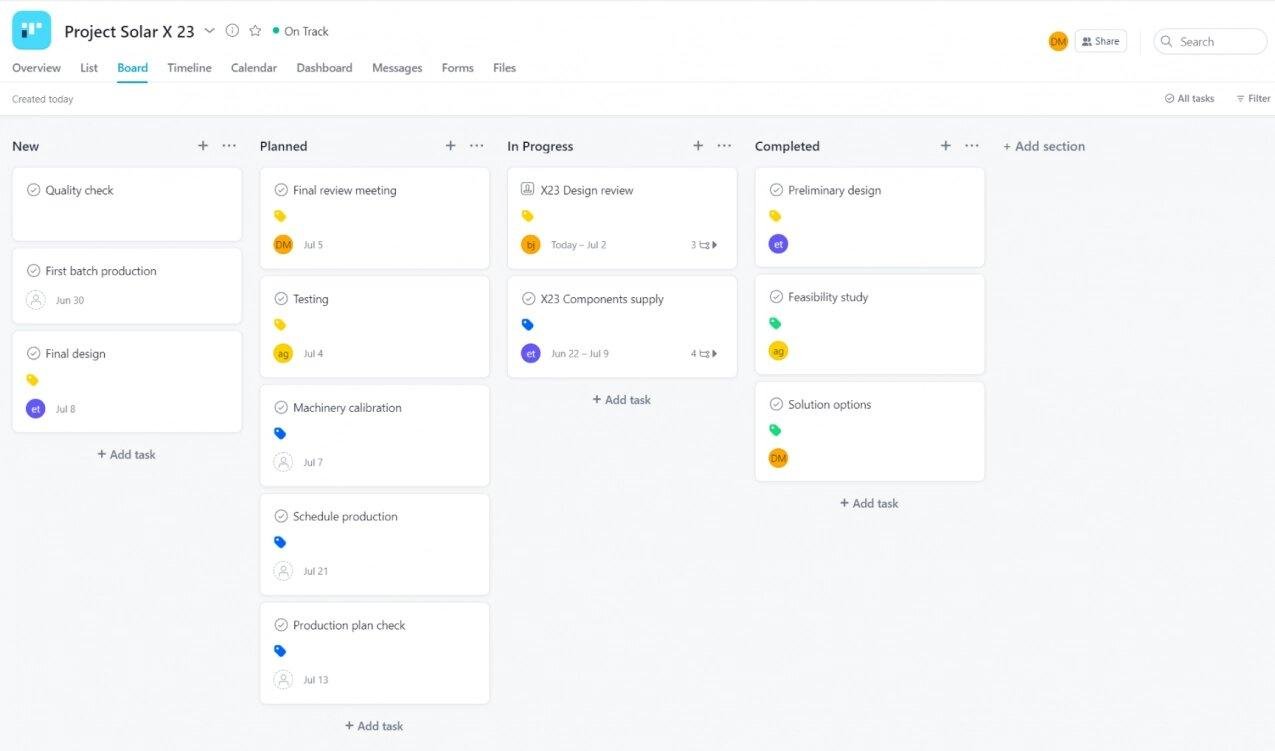
It’s also great for teams that need to collaborate easily—everything from task assignments to conversations can happen in one place.
That said, Asana lacks some advanced features, like Jira’s issue-tracking capabilities or its deep integration with development tools. If you’re running complex software projects, Asana might not have all the functionality you need.
Asana works well for simpler projects and teams looking for easy collaboration. For more technical workflows, Jira may still be the better fit.
Related: Asana Review
ClickUp
If you’re looking for a Jira alternative that’s flexible and packed with features, ClickUp might be worth considering.
It’s designed to handle everything from task management to team collaboration, and it’s especially popular for its versatility across different industries.
ClickUp offers a wide range of features, including time tracking, custom workflows, and multiple views like lists, boards, and Gantt charts.
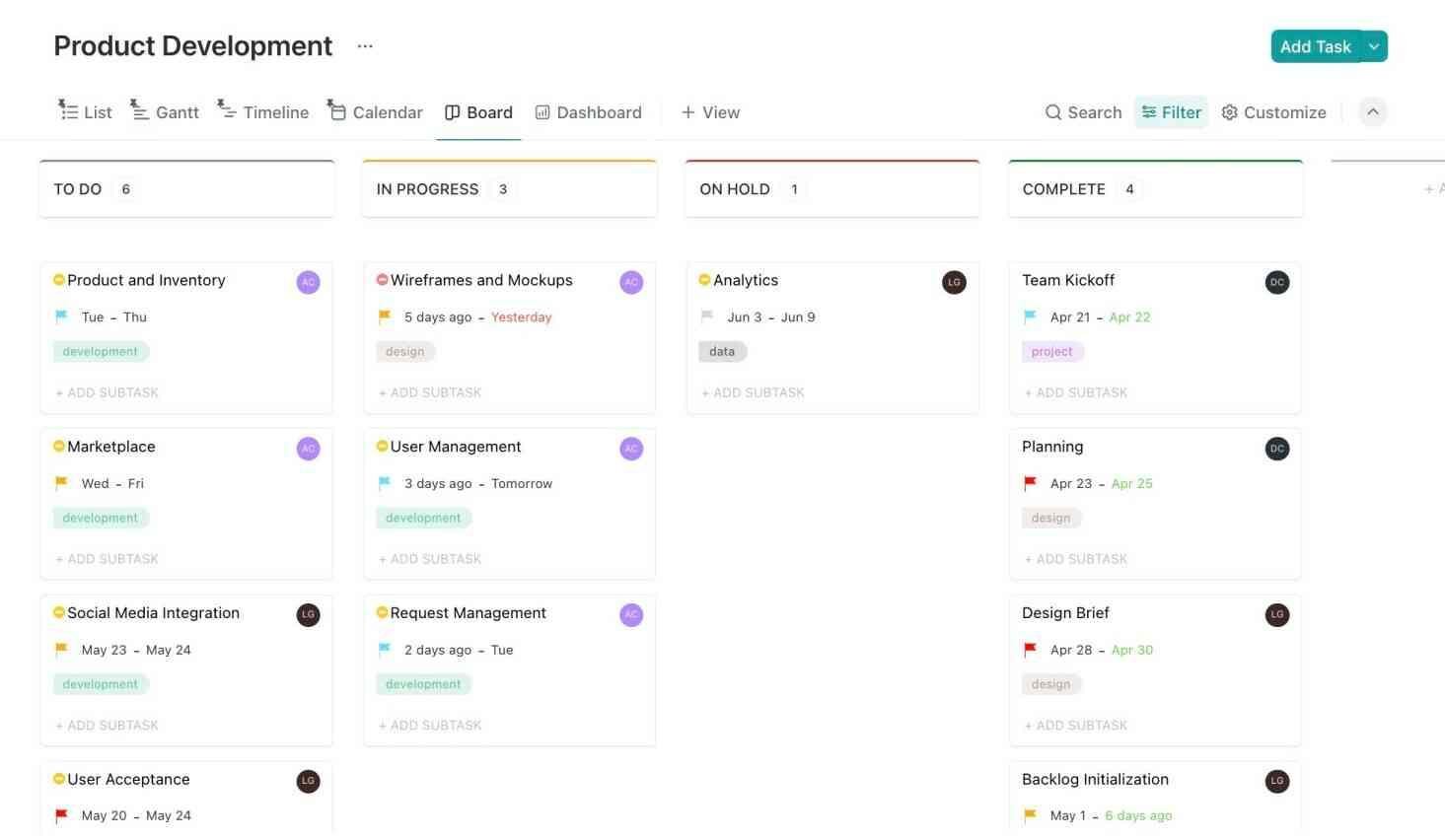
You will appreciate its ability to manage tasks, deadlines, and communications all in one platform. It’s also highly customizable, so you can tweak it to fit your team’s needs.
However, when compared to tools like Jira, ClickUp can be overwhelming with so many features, especially for teams that need something simple.
It might take some time to get the hang of its full range of functionalities, and if you’re focused on development-specific tools, it might not offer the deep integrations Jira does.
ClickUp is great for teams that need flexibility and a variety of features, but if you’re focused on development workflows, Jira might still be a better choice.
Related: Clickup Review
Final thoughts on Jira alternatives
As you’ve seen, alternatives like Asana, ClickUp, and Smartsheet offer various features that might suit teams seeking simplicity, flexibility, or strong collaboration tools.
For instance, if your focus is on client management or creative tasks, Jira competitors like Asana or Airtable could be better choices. On the other hand, if you need more robust project tracking and reporting features, ClickUp or Smartsheet may serve you well.
Ultimately, the best tool is one that helps your team stay organized and productive without unnecessary complexity. Testing out a few alternatives to Jira and gathering feedback from your team will help you make an informed decision.
Did I miss anything? Did you try these options? Do you have any questions or comments? Share your thoughts below in the comments section.





